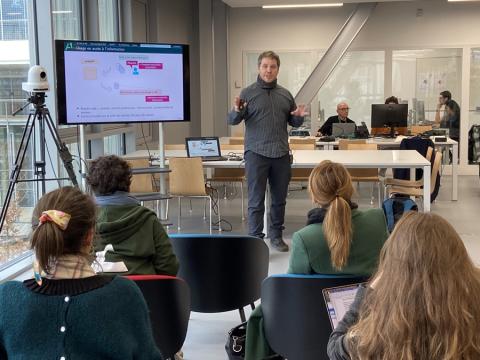
“Artificial Intelligence gives new impetus to agricultural research”: Three questions to Vincent Guigue
October 21 2024Data scientist and computer science professor Vincent Guigue has joined AgroParisTech to support the rise of artificial intelligence (AI) in teaching and research. An opportunity to find out more about the subject from the man who has already detected some promising avenues.
How does AI fit into the work of agronomy researchers?
I’m seeing some spectacular advances in subjects where data science had little presence. AI complements the statistical tools that have long been in place. For example, it enables us to estimate the results of costly full-scale experiments, so as to steer them in the right direction from the outset.
Another trend is qualitative progress, where predictive models already exist, such as digital farm twins. They are complex to build and validate, and AI helps us to improve and refine their parameters.
What themes are you working on?
I’m using AI to bring together my two favorite subjects: time series, especially from sensor networks, and language models for text analysis. Let’s say you want to refine yield predictions: we can exploit both field sensor data and texts describing the agronomic, climatic and pedological context of the plot. Building models at the interface between data modalities is a very promising prospect.
What role can AI play in the training of the school’s students?
In the 5th year, my laboratory welcomes 15 to 20 Master 2 students specializing in bioinformatics. Their year includes six months of training, followed by six months of practical internship. Outside the school, I give lectures on AI for different audiences. Last year, I gave two or three a month; I’ve never been so much in demand.
Editor : Médiathena

